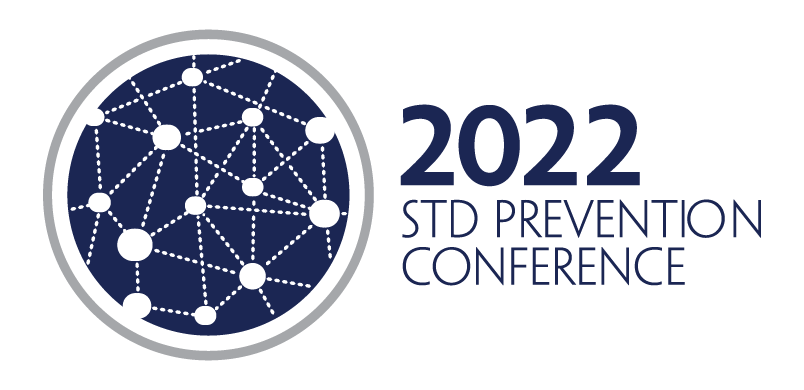
Call for Late-Breaker Abstracts
2022 STD Prevention Conference
The Scientific Program Committee invites papers of high quality in the areas of STD prevention research, program, policy, diagnosis, and treatment. Abstract submissions are peer-reviewed for scientific content, logical presentation, timeliness, and current interest of the topic to the scientific community.Deadline for Late Breaker Abstract Submission
Late breaker abstracts must reflect work where data collection ended in 2021 or 2022. This information must be included in the abstract methods section to be considered for presentation. Abstracts must be submitted electronically no later than July 8, 2022, 11:59pm (PST). Abstracts sent by mail, fax or email will NOT be accepted.Required Abstract Format
Submitted abstracts must report new information not previously published or presented at a national or international scientific meeting prior to May 2, 2022. Please note that abstracts previously presented at meetings will not be accepted unless there is a substantial update of data.General Abstract Format
Abstracts (300 words in length) should contain the following four components (please bold the four section headings noted below within the text of your abstract submission):- Background: a concise statement of the issue under investigation or a hypothesis
- Methods: the methods used (including the statistical analyses employed)
- Results: specific findings (promises such as “to be completed” or “to be presented” are not acceptable; no figures or tables)
- Conclusions: a summary of findings that are supported by your results (statistical analyses used to support the conclusions, where appropriate, should be included; concluding statements such as “the results will be discussed” are not acceptable)
Please do not include grant acknowledgements, literature references, or copyright or trademark symbols. For your reference, we have provided guidance on "How to Write an Abstract" for tips, advice, and how to avoid common mistakes and errors.
Multiple abstracts reporting results from the same study and overlapping abstracts from the same group of investigators are strongly discouraged.
Abstracts are considered official communications to the conference. Individuals submitting abstracts that are accepted agree to attend the meeting and present their abstract as scheduled (as an oral abstract, poster, and/or poster discussion presentations, as determined by the Scientific Program Committee). Once an abstract has been accepted and scheduled, it cannot be withdrawn.
Submit Now
General Information
The Scientific Program for the 2022 STD Prevention Conference is structured so as to reflect a program science approach. The scientific program is organized into five Tracks, which represent the overarching framework of the conference. In addition, we are soliciting submissions for interesting, unusual, or complex clinical cases to be included as part of the Clinical Case Series. Please see below for definitions and coverage of Tracks.You will not need to select a track when submitting your abstract. Instead, we will ask you to answer several questions about your abstract that will enable us to ensure it is reviewed appropriately. The questions pertain to topics such as the primary population of focus, gender, age group, geographic area of study, setting, disease/infection, methodology, and analytic approach. Please carefully read through the entire classification list before submitting to ensure that your submission is read by the appropriate review team
Tracks
I. Assessment: These tracks will focus on trends and associated factors in STD-related morbidity and behaviors, as well as health services access and utilization. The tracks will also include studies designed to improve and ensure valid evaluation methods for public health programs. The track committees include experts on biomedical, behavioral, epidemiological, and structural assessment, and surveillance strategies.II. Individual-level Intervention Research: This track will focus on studies of biomedical, behavioral, and health services.
III. Policy: This track will cover issues around laws, regulations, and other administrative actions or practices of governments and other institutions, including health clinics, which can impact STD prevention. Areas of focus can include policy development; assessment or evaluation of policy; individual policy interventions; and the integration of science, equity, policy, and program.
IV. Clinical & Laboratory: This track will include material on core components of STI programs (both extant and potential) and the latest in prevention services, including social, behavioral, and network-based interventions. We are recruiting a committee with expertise in biomedical, behavioral, and structural interventions, disease investigation and intervention strategies, health service delivery, and implementation science
V. Program Science: This track will cover work on development and improvement of STD prevention programs, including assessment, strategic planning, interventions, evaluations, and quality improvement at the population level.
Submit Now
Acceptance Notification
Late Breaker Abstracts selected by the Scientific Program Committee for presentation at the conference will be notified by email beginning Wednesday, July 27, 2022.Questions
If you have questions regarding abstracts or the submission process, please contact the 2022 STD Prevention Conference Planning Team at stdconf@cdc.gov.Event Information
September 19-22, 2022Virtual
All session times are Eastern Daylight Time.
Register
Important Dates
October 23, 2022Continuing Education (CE) Submission Deadline

